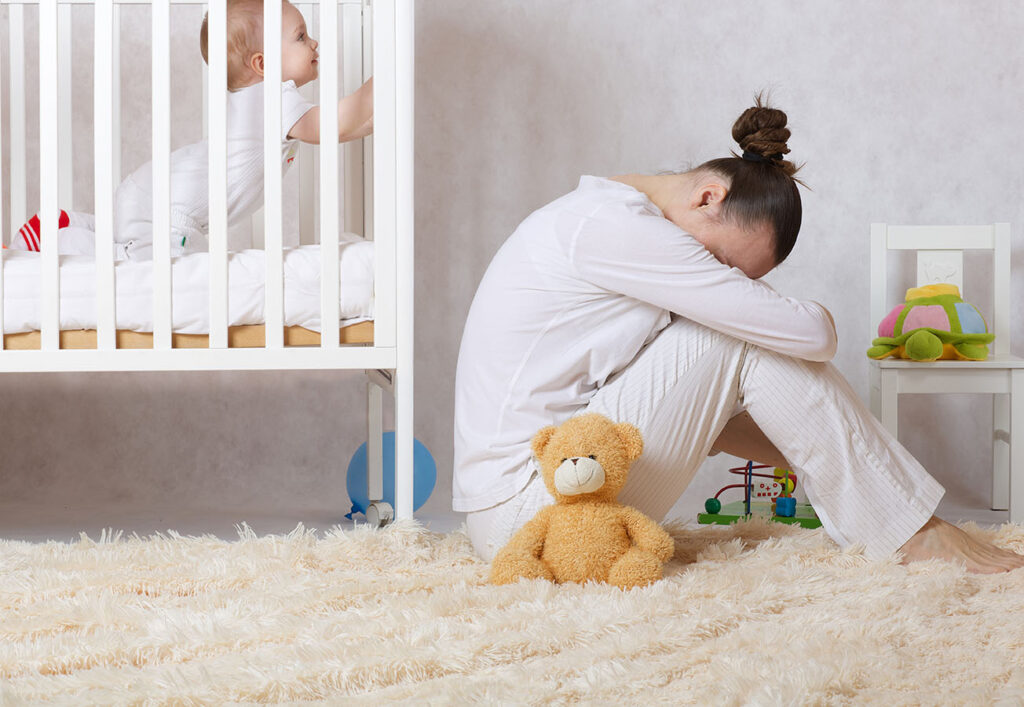A gentle guide for mothers who feel the weight of motherhood more deeply than expected.
In the early days of motherhood, the world expects a glow — happy tears, sleepy cuddles, and overwhelming love. But for many mothers, something else quietly arrives. It doesn’t always show up in loud cries or dramatic sadness. Sometimes it’s a numbness. A heaviness in the chest. A sense that you’ve disappeared, even as you cradle the most beautiful new life in your arms.
This quiet heaviness has a name: Postpartum Depression (PPD).
And if this feels like you — know this: you are not alone, and you are not broken.
Baby Blues vs. Postpartum Depression: What’s the Difference?
It’s completely normal to feel emotional after giving birth. In fact, about 70–80% of new mothers experience what’s known as the “baby blues“ — a temporary wave of moodiness, crying, or feeling overwhelmed. These feelings usually begin within the first few days after delivery and fade on their own within two weeks.
The baby blues are often caused by the sudden drop in pregnancy hormones, physical exhaustion, and the emotional shift of becoming a mother. You might cry more easily, feel anxious, or have trouble sleeping, even when the baby is resting.
But if the emotional heaviness lasts longer than two weeks, or grows more intense — interfering with your ability to care for yourself or your baby — it may be more than the baby blues. That’s when it could be postpartum depression.
Unlike the baby blues, postpartum depression doesn’t just go away on its own. It lingers. It deepens. It may make you feel disconnected, helpless, or like you’re not yourself anymore.
What Does Postpartum Depression Really Feel Like?

You might feel:
- A deep sadness that seems to hang over your days
- Irritability or anger that surfaces without warning
- Difficulty bonding with your baby
- A constant feeling of being overwhelmed or hopeless
- Fatigue that isn’t just from sleepless nights
- A sense that you’re not doing enough — even when you’re doing everything
These are not just emotional ups and downs — they are signs that your mind and heart are in need of care.
Why It Happens
Postpartum depression can affect any new mother — regardless of background, birth experience, or how much support you have. It’s often caused by a mix of hormonal changes, sleep deprivation, emotional stress, and the weight of a new identity that no one fully prepares us for.
Please remember:
Postpartum depression is not your fault.
You didn’t cause it. And it says nothing about your love or ability as a mother.
What Healing Can Look Like
The most important thing is to not stay silent. Speak. Share. Let someone in.
- Reach out to your doctor, midwife, or therapist. There are gentle treatments — from talk therapy to natural supports to, when needed, medication.
- Let others help you. Ask for meals, a clean load of laundry, or time to rest.
- Take one small step each day — a shower, a short walk, a deep breath in the sun.
- Know this isn’t forever. With the right support, things can and do get better
You Are Still a Good Mother
It’s possible to love your baby deeply and still feel lost. That doesn’t make you weak — it makes you human. You are showing up, even in the fog. That alone speaks of your strength.
Healing from postpartum depression takes time, but peace is possible. You deserve support, not shame. Rest, not guilt. And grace, always.
Gentle Resources for Support
- India: Snehi Helpline – +91-9582208181
- Global: Postpartum Support International
- Start with your OB-GYN or child’s pediatrician
Final Thought
“Even the strongest mothers need someone to lean on.”
If you’re carrying this quiet weight, please don’t carry it alone. You’re not less of a mother for feeling this way — you’re just a mother in need of care, too.

